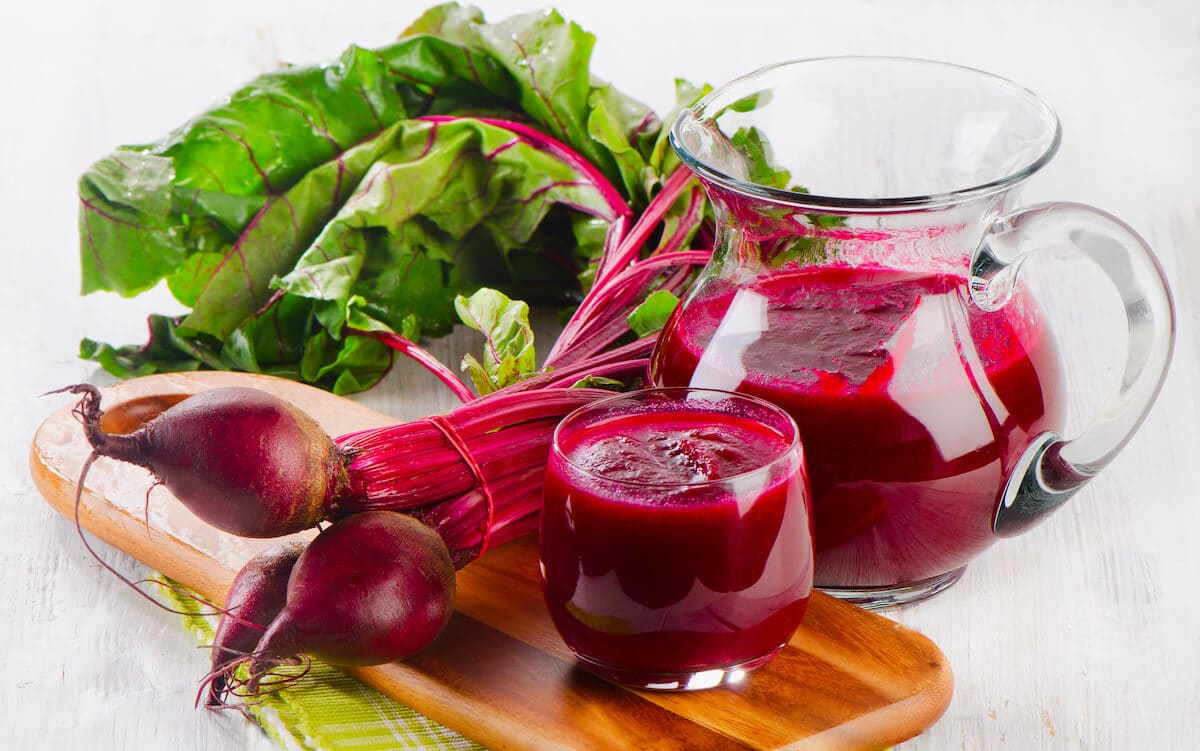
24 Sep Supplements for Athletes: Top Options to Consider
As any elite athlete knows, superior athletic performance requires a rigorous training program and the right mindset. It also requires proper nutrition — and because the demands on your body are far higher than those of the average person, that often means you need to top your food intake with the right supplements for athletes.
The range of supplements available these days can be overwhelming and it’s best to consult an expert on sports nutrition to verify exactly what you need. Our list is a good starting point though and may also help you understand why some supplements might work better for you than others.
Why Do Athletes Need Dietary Supplements?
Whether you’re an amateur or professional marathoner, boxer, weightlifter, soccer player, gymnast, or otherwise highly active individual, all athletes must pay extra attention to their nutrition.
As a baseline, you need to make sure you’re getting enough of the right whole foods and plenty of hydration throughout the day. However, even if you eat the healthiest possible diet, whole foods alone may not be able to fuel enough energy production for your extremely high level of physical activity. You also need extra support to build and maintain your muscle mass and strength, and help your body quickly recover after you’ve put it through its paces.
Furthermore, if you’re vegan or vegetarian, it’s worth noting that many important nutrients come from animal products. As such, you may also need to consider plant-based supplementation to fill any gaps.
Ergogenic Aids
To support your entire system to deliver enhanced performance, you probably need ergogenic aids. Ergogenic aids are any substances or tools you use, be they nutritional, physiological, mechanical, or psychological, to take your exercise performance to the next level and give you a competitive advantage.
These can range from dietary supplements — including vitamins, minerals, and amino acids — to carb loading and energy drinks or bars. There’s a whole range of support available and you certainly won’t be alone in taking advantage of what’s out there.
The Best Sports Supplements for Athletes

Before you go out and buy one of everything, let’s take a look at some of the most useful supplements for athletes.
Protein and Amino Acids
Some of the most basic requirements for an amateur or professional athlete are muscle-building, strength, and energy. As such, amino acids are almost non-negotiable. Your body needs amino acids to build its entire structure from muscle, organs, and bones through to the details like hair and nails. Some of these amino acids can be produced by your body, but there are others that must come from your nutritional intake — these are known as essential amino acids.
Of the nine essential amino acids, possibly the most important for athletes are the branched-chain amino acids (BCAAs) — leucine, isoleucine, and valine. BCAAs are critical for fueling the body and for building and maintaining skeletal muscle — especially leucine, which activates the essential process of muscle protein synthesis. BCAAs also help your body to recover quickly after high-intensity exercise.
You can get essential amino acids from food sources, especially complete proteins — and you need to make sure you get enough for your body weight — but for peak performance, you probably need more than the minimum.
If you consume dairy products, consider a high-quality, whey protein powder, like Ingredient Optimized ioWhey Protein, which you can find in Performix ioWhey Protein. If you’re vegan or vegetarian, or can’t tolerate dairy, a plant protein might be a better choice — for example, Kaged Muscle Plantein, which contains Ingredient Optimized ioPea Protein. Both ioWhey and ioPea are incredibly high in essential amino acids and proven to be highly bioavailable.
If you’re particularly in need of BCAAs, look out for a pure BCAA supplement like Ingredient Optimized ioBCCA. Partner products using ioBCAA will be coming to retail and online stores soon.
Protein and amino acid supplements can be taken pre-workout, post-workout, or intra-workout.
Creatine
Creatine helps your muscles release energy. It supports the growth of lean muscle mass and boosts strength, especially when combined with strength training, enhancing overall performance. Not surprisingly, this makes creatine especially popular with bodybuilders.
Our body naturally makes creatine from the amino acids arginine, glycine, and methionine, but if you’re lifting heavy weights or involved in an intense exercise program that may not be enough. Supplementing with creatine can then help to give your muscles the extra energy and stamina they need.
Creatine is available in several different forms including:
- Creatine monohydrate
- Creatine hydrochloride
- Creatine magnesium chelate
- Creatine ethyl ester
- Liquid creatine
- Buffered creatine, or Kre-Alkalyn
- Creatine hydrochloride, or creatine HCL
- Creatine gluconate
- Creatine nitrate
- Creatine malate
- Creatine orotate
- Creatine pyruvate
- Creatine citrate
- Creatine phosphate
- Creatine alpha-ketoglutarate, or creatine AKG
Creatine is also sometimes sold as a blend of different types of creatine or with other supplements like caffeine and amino acids.
Creatine monohydrate is the most researched of the forms and for most users it’s likely to be the best and most cost effective option. It’s best taken before your workout.
Carnitine
Carnitine is involved in transporting fatty acids into the cell mitochondria so they can be used by the body. It works well with whey protein as it helps to boost energy and build muscle tissue, and it speeds up muscle recovery after heavy exercise, reducing muscle soreness. It’s also useful for weight loss and managing body composition if that’s important to you.
Carnitine — or L-carnitine, as you may see it written — can be taken either before or after a workout.
Beetroot Juice

Beetroot might not be the first thing you think of when you consider supplements for athletes, but there is research to support its efficacy. Beetroot contains nitrates, which are converted to nitric oxide (NO) by your body.
NO increases dilation of your blood vessels, which improves blood flow to your muscles, strengthens muscle contraction, and helps you use oxygen more efficiently. This helps you run faster, gives you power, delays fatigue, and enhances performance overall.
Drink beetroot juice about 90 minutes before you start exercising as it works best for 2-3 hours after ingestion.
Glutamine
Glutamine is another supplement that helps with muscle growth and recovery, and it also reduces muscle breakdown. During high-intensity exercise, your body requires extra fuel and if it doesn’t have enough, it starts to break down your existing muscle to access the glycogen stored there. A glutamine supplement supplies extra fuel and helps you to keep going for longer before fatigue sets in. As a bonus, it also boosts your immunity and digestive system.
Take glutamine in the morning and before bed, as well as just before and just after a workout.
Omega-3 Fatty Acids
Omega-3 fatty acids have anti-inflammatory and antioxidant properties, plus support joint health, which is crucial for high-level athletes. They also help build and maintain muscle, reduce delayed-onset muscle soreness, regulate blood sugar and cholesterol, support cardiovascular health disease, and improve neuromotor function.
Take omega-3s regularly to get their full benefits. You can take them any time of day, ideally with a meal that contains some fat to help increase absorption.
Magnesium
Sleep is when your body does its best repair work, so getting good quality sleep is critical for athletes — and magnesium helps you get it. Magnesium also supports cell formation and protein synthesis, regulates blood pressure, prevents muscle cramps that may be caused by a buildup of lactic acid, and helps to metabolize adenosine triphosphate (ATP). ATP stores and carries energy in cells, especially during strenuous exercise.
The advice on when to take magnesium is somewhat conflicting, but taking it with a meal is recommended to reduce the chances of diarrhea — a side effect that some people experience. And if you are specifically using it to help you relax and get a good night’s sleep, try taking it in the evening.
Vitamins and Minerals

These are some of the most important vitamins and minerals to consider when you’re training intensely:
- Vitamin B: The B vitamins help to metabolize the essential macronutrients — protein, fat, and carbohydrates — so your body can use the energy they provide to keep going. They also help with repairing cells and are therefore important for recovery after exercise.
- Vitamin D and calcium: Both calcium and vitamin D help to keep your bones and muscles healthy, reducing the risk of injury and fractures, and also helping with muscle recovery after intense exercise.
- Vitamin C and vitamin E: These “antioxidant” vitamins help to fight inflammation and keep you going when you’re tired.
Other Potentially Useful Supplements for Athletes
While they’re not necessary for everyone — and in some cases, the research around them is somewhat conflicting — you may also find these supplements useful:
- Iron: Anemia is a common problem for athletes and a deficiency can result in unnecessary fatigue. Extra iron is particularly important for vegetarians who may not get enough from vegetable sources, and for female athletes who may need to replace what they lose during their monthly cycle.
- Beta-Alanine: This helps to reduce muscle fatigue and keep up your strength and endurance.
A Word of Caution Around Supplements for Athletes
Supplements are not regulated by the U.S. Food and Drug Administration (FDA) so it’s worth doing your research carefully before you spend your hard-earned money or subject yourself to possible health risks or undesirable side effects.
Read the ingredients list on any protein supplement or sports drink to see exactly what it contains and check how reputable the manufacturers are – Google is your friend here. Also, check how bioavailable the ingredients are — if they’re not, you are literally flushing money down the toilet.
Be aware too that high doses of anything can be harmful. Follow the recommended dosage on the packaging and you may also want to check with a dietitian or sports medicine expert if a particular supplement for athletes is appropriate for you.
It’s worth noting that some normally perfectly safe supplements can react with other medications, or not work well with certain health issues. If you have any medical conditions, consult your doctor or healthcare practitioner before adding anything to your dietary routine.
Do You Need Nutritional Supplements?
If you’re an athlete following a rigorous training program and taking part in sports performance events, your body may need more nutrition than you can get from a healthy diet. Dietary supplements can amp up your body’s supplies of essential nutrients and give you the extra boost you need to perform at the top of your game.


